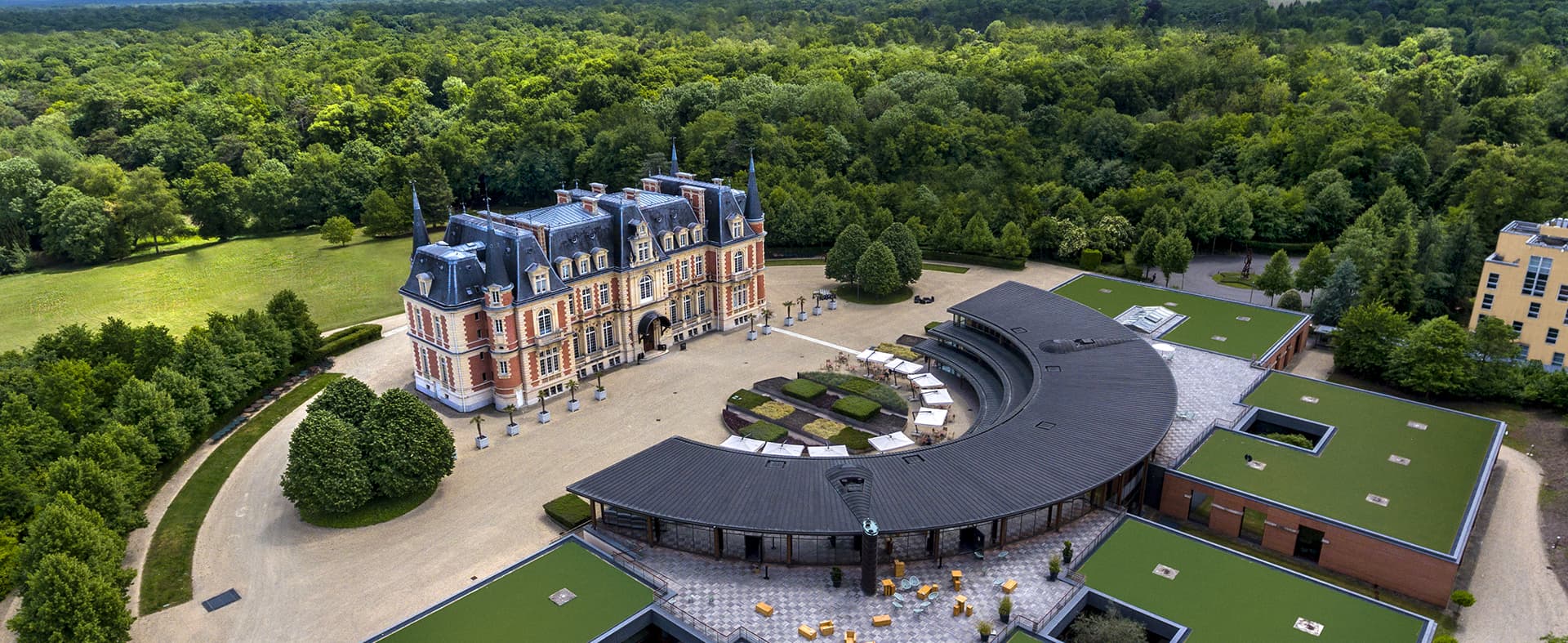
Host your meeting in a green
oasis just outside Paris
- A seminar center with a 450-seat auditorium and 60 modular meeting rooms, all of which are equipped with state-of-the-art technology,
- A beautiful castle for social gatherings,
- 300 stylish bedrooms, renovated in 2021,
- Sports facilities: an indoor swimming pool, gym, tennis courts, football pitch and outdoor fitness trail.
Seminar rooms
Functional, connected spaces that encourage innovation and collaboration
Conferences, training sessions, workshops: the workspaces at Les Fontaines can be adapted to suit the needs of businesses looking to host events for up to 700 people.
All rooms are equipped with:
- a Wi-Fi connection,
- videoconferencing systems,
- interactive whiteboards, on request.
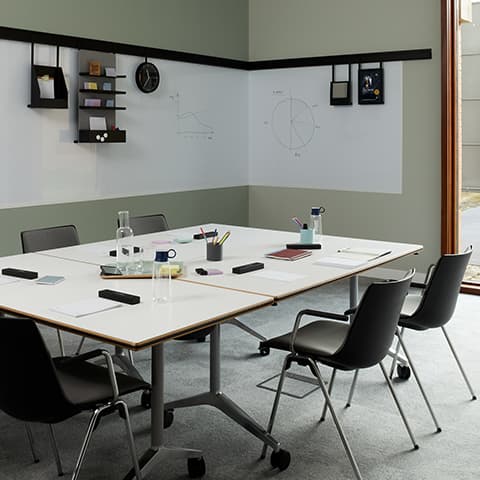
Small and medium-sized rooms
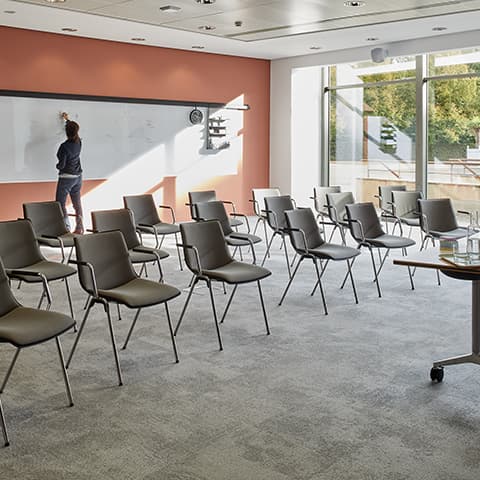
Large rooms
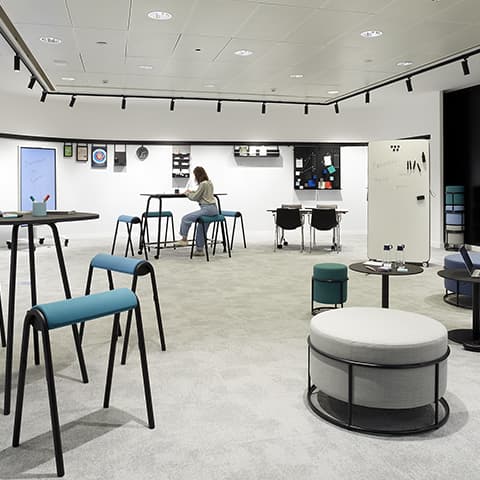
Special rooms
Creative room: an 80 m² space specifically for devising, designing and developing projects and programs
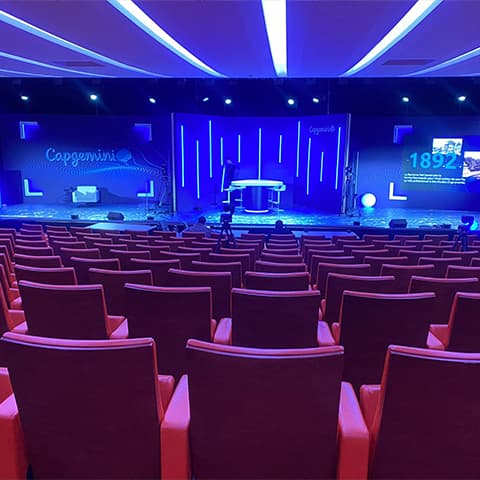
Auditorium
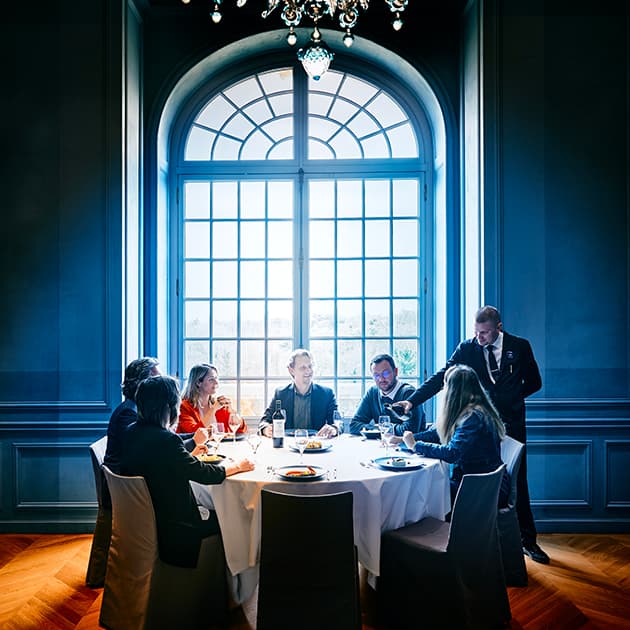
An exceptional venue,
serving exquisite food
Head chef Jean-François Picq and his team are passionate about what they do, and you can taste the hard work and pride that go into every dish they serve. During your seminar, meals are served in the castle or, in summer, outside.
Our menus reflect our CSR commitments and actions, and feature fresh, local, seasonal products that are organic and/or fair-trade.
Our wines are organic or biodynamic.*
* apart from certain fine and prestigious wines
Our range of menus
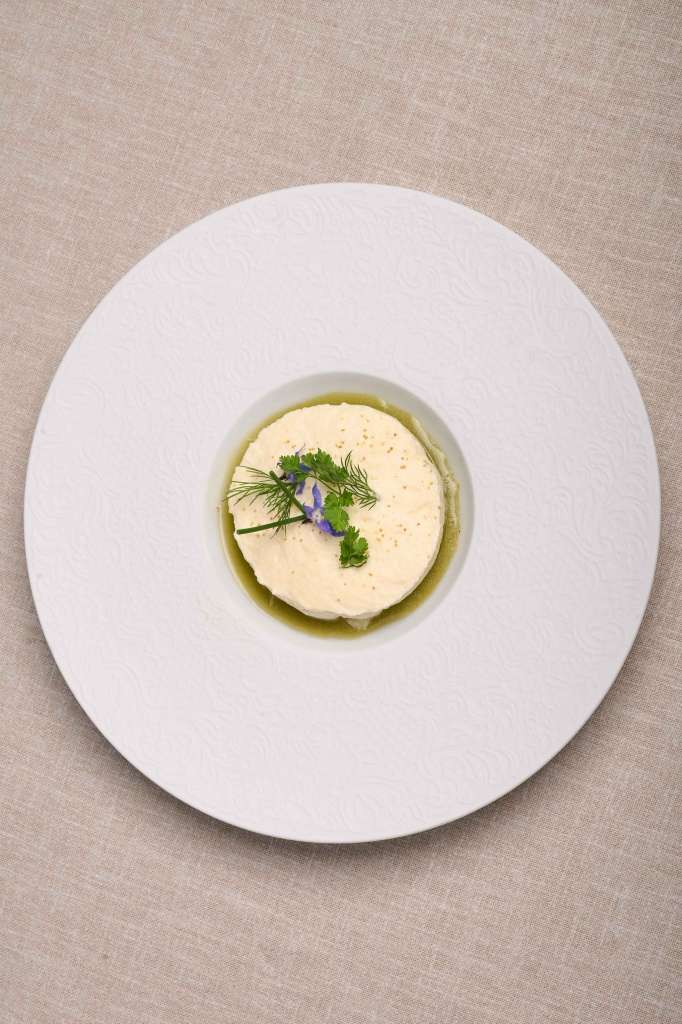
Seminar menu
Whether you opt for drinks and nibbles, a buffet, or a sit-down meal, consider including a local specialty or vegetarian element
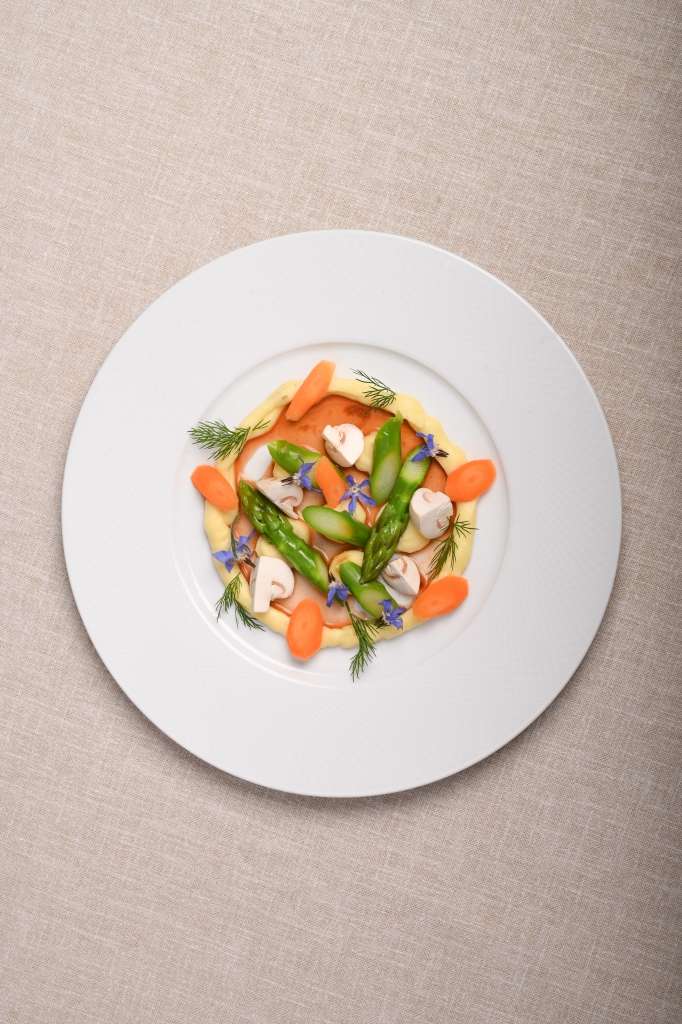
Gala menu
Choose excellence
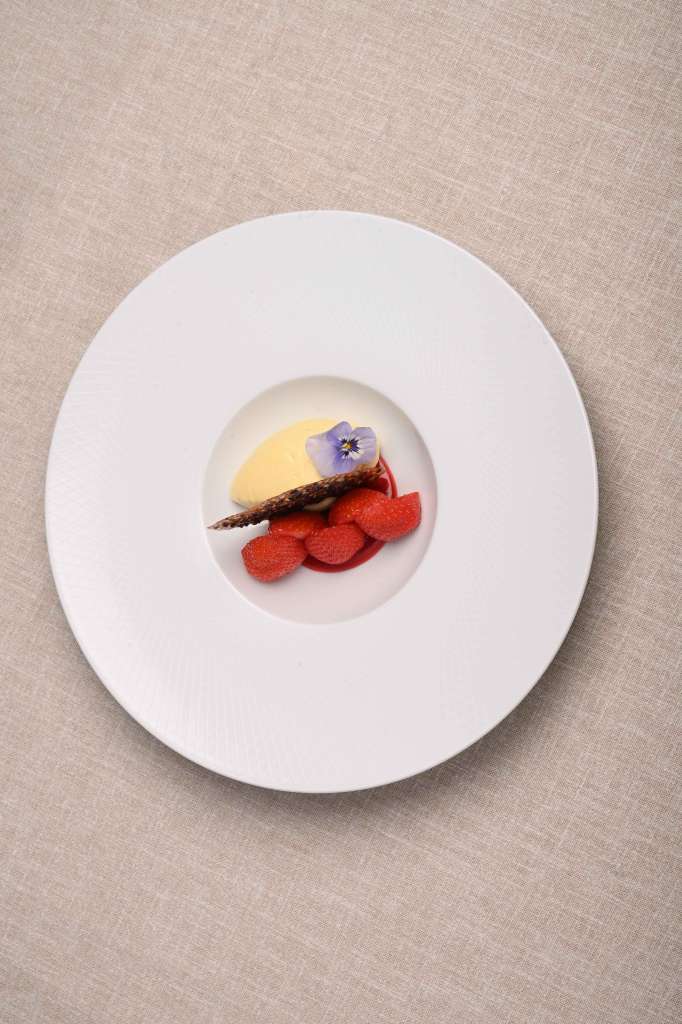
Personalized
Build your menus and entertainment around the theme of your event
Our dining areas
A plethora of possibilities for your dining pleasure.
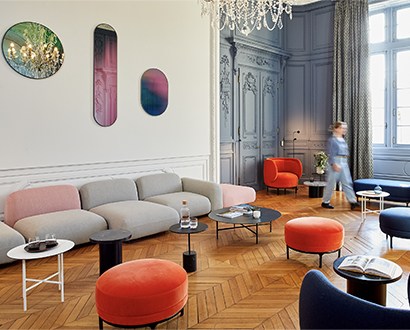
Deluxe rooms
In the castle, there are various magnificent rooms that can host up to 500 people for a sit-down meal or 700 for a cocktail reception.
There is also an elegant bar surrounded by a piano lounge, winter garden and club room – ideal for a variety of evening events.
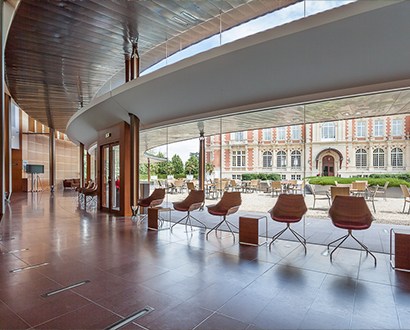
The Forum and Café
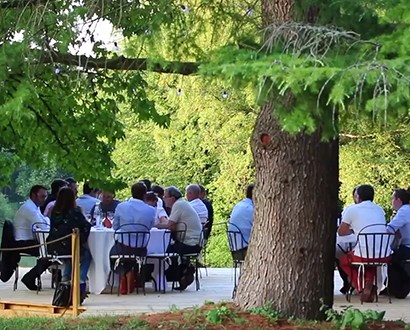
Outside spaces
Accommodation
Modern and environmentally friendly rooms
In a calm and green setting, the rooms are designed for participants to rejuvenate during their seminar.
As with everything else at Les Fontaines, they comply with our commitment to sustainability.
The rooms are heated and cooled by geothermal energy, and the electricity we use is from 100% renewable sources.
All villas have rooms that can accommodate guests with reduced mobility.
In 2022, the renovation we carried out the previous year saw Les Fontaines awarded the Janus Label of Excellence in the Living Space category by the French Institute of Design.
- Laundry service,
- Concierge service,
- Local de repassage.
- TV,
- Air conditioning,
- High-density Wi-Fi,
- Hairdryer,
- Safe.
Accommodation
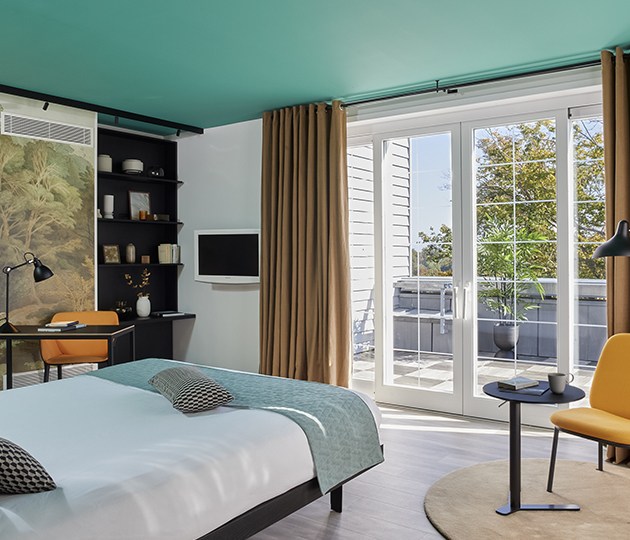
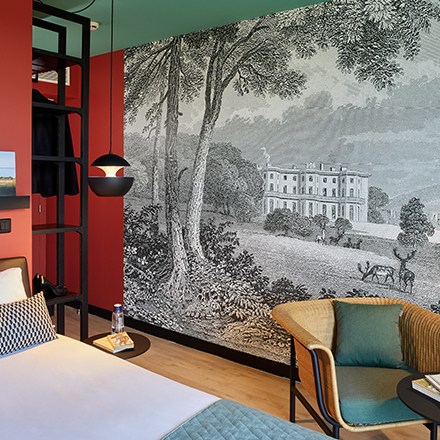
Standard room
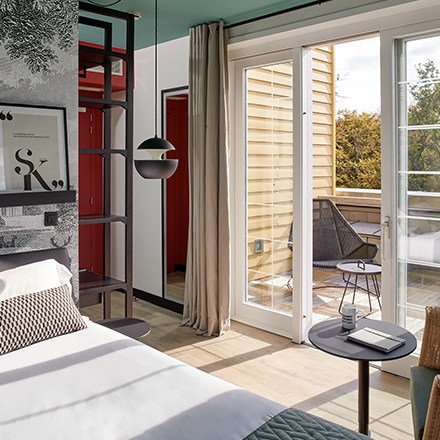
Superior room
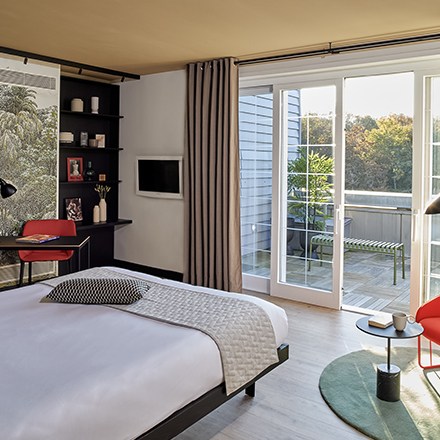
Suite
Comfortable, stylish, luxurious
Activities: sport and well-being on the Estate
Jogging, mountain-biking, etc.
The swimming pool
The Thermes
- a sauna,
- a hammam,
- a gym.
Tennis, football and rugby
- two tennis courts,
- a multi-sports pitch (for playing soccer, rugby, etc.),
- a pétanque pitch.
History: Les Fontaines through the centuries
- The main façade is in the style of Henri IV and the Place des Vosges in Paris,
- The round towers are neo-Gothic,
- the central pavilion is inspired by the Northern (Dutch and English) Renaissance,
- and, especially, the Eiffel-type steel frame – the epitome of modernity and innovation at the time.


